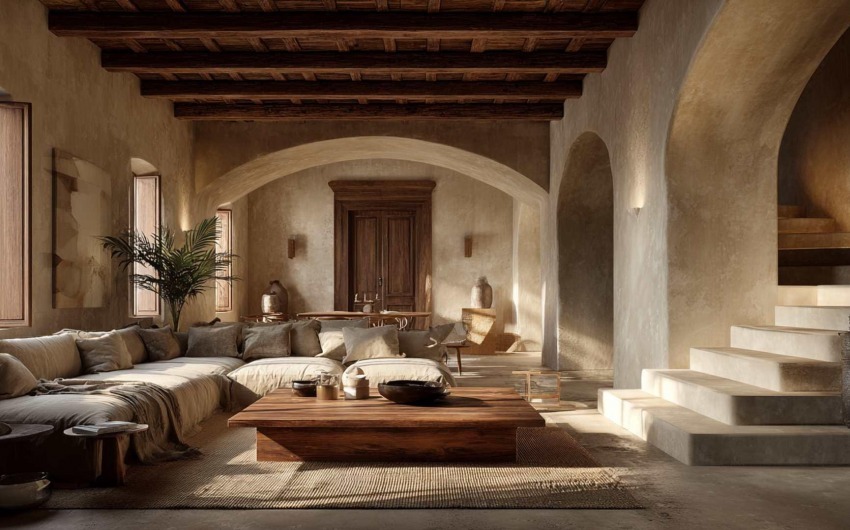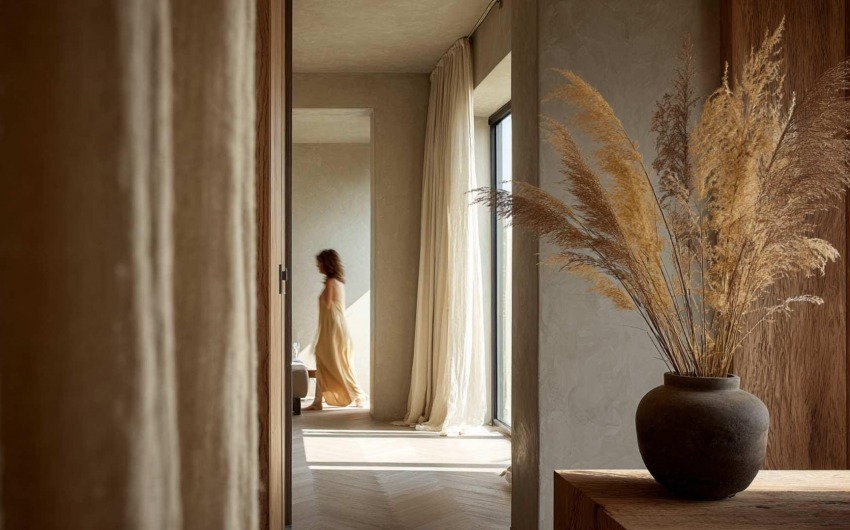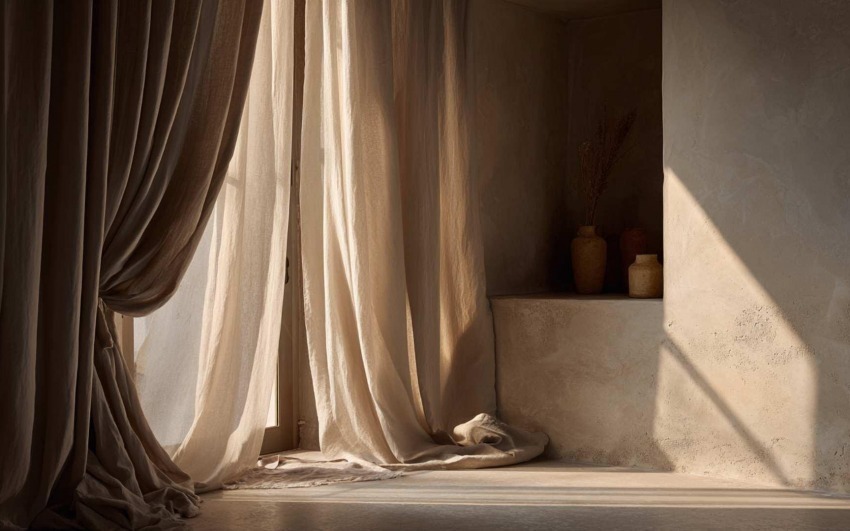2/24/2023
The ceiling with exposed beams is a highly sought-after element thanks also to its versatility of adaptation in styles: unlike what one might think, exposed beams, especially in wood, do not adapt perfectly only to a rustic style, rather they enhance and can in turn be enhanced by furnishings of different styles, from industrial, to classic, to minimal, to country, to shabby chic, to modern, and many others.
_4a2a28ce8a_.jpg)
If the intention is to recreate a predominantly rustic environment, with wooden furnishings and parquet floors, the exposed wooden beams are an element that cannot be missing. A ceiling with exposed wooden beams guarantees a remarkable scenic effect and gives that characteristic touch of personality to our rooms.
The wooden beams can be of two types: solid wood and lamellar, both with distinctive characteristics for the atmosphere of our home. Solid wood is characterized by its truly precious aesthetic touch and allows us to evaluate a solution in 100% pure wood, which is resistant and insulating, guaranteeing a clean and healthy environment. Furthermore, the solid wood beams are distinguishable from the others, since the grain of the wood is not interrupted and has more rustic characteristics, obtained directly from the cut of the trunk.
_e7bd1aa83a_.jpg)
Instead, laminated wood, thanks to its greater flexibility and its particular resistance to loads, is used more for geometric structures with lighter shades and, usually, they are design solutions capable of recreating highly sought-after atmospheres. In addition, the laminated wood is able to attribute greater acoustic insulation to the affected area, simultaneously ensuring a remarkable scenic effect.
_68c03dc09e_.jpg)
Again with reference to wooden beams, although many people love their characteristics as regards the type of material, they often cannot stand their shades: this is why, in some cases, wooden beams can be treated and made completely colored white or black, giving, depending on the color chosen, a lot of brightness and a particular look to our home. This solution is used a lot in modern homes, characterized by the use of a modern, Nordic and shabby chic style.
_2c1f0a17b6_.jpg)
In some cases, the idea of inserting only a few details with wooden beams is preferred, without evaluating for a solution that covers the entirety of the ceilings of our home. For example, in environments such as the living room and the kitchen, we could insert some details on the ceiling or opt for one as a sort of dividing element between the two environments.
_94530e8e6b_.jpg)
_970967c26c_.jpg)
Now let's talk about metal beams: in general, they are made with materials such as iron and steel, adapting perfectly to houses with more modern features and also guaranteeing an excellent weight / resistance ratio. Unlike what one might think, exposed metal beams are not necessarily a cold solution, especially if one considers painting them with the same color as the ceilings, for example white. We also remind you that metal is a non-porous material, therefore, if you decide to proceed with a painting, you must first perform an abrasive treatment, so as to make the paint adhere more.
_6205594871_.jpg)
Last but not least, are the faux wood beams, made with materials such as polyurethane and easily adaptable to all types of homes. However, their purpose is purely decorative and much cheaper and easier to install than other solutions. For this alternative, we find many models and finishes to consider.
_a9051c7a1e_.jpg)
_14077b47db_23.jpg)
Interior Designer since 1985
CEO & Founder, Italian Design in the World
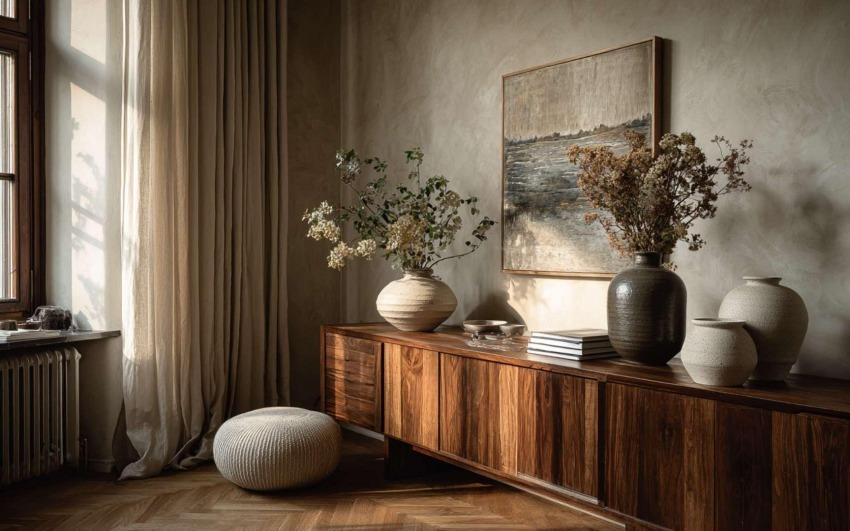
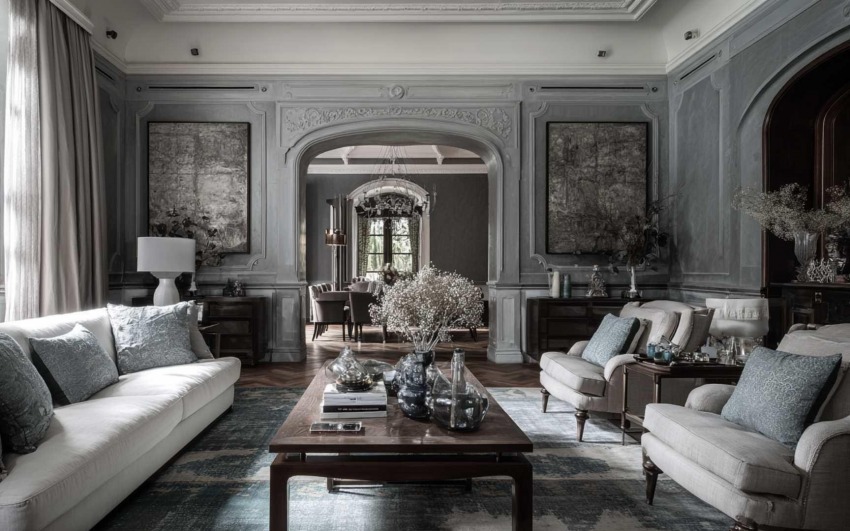
_c49d85500f_642.jpg)
